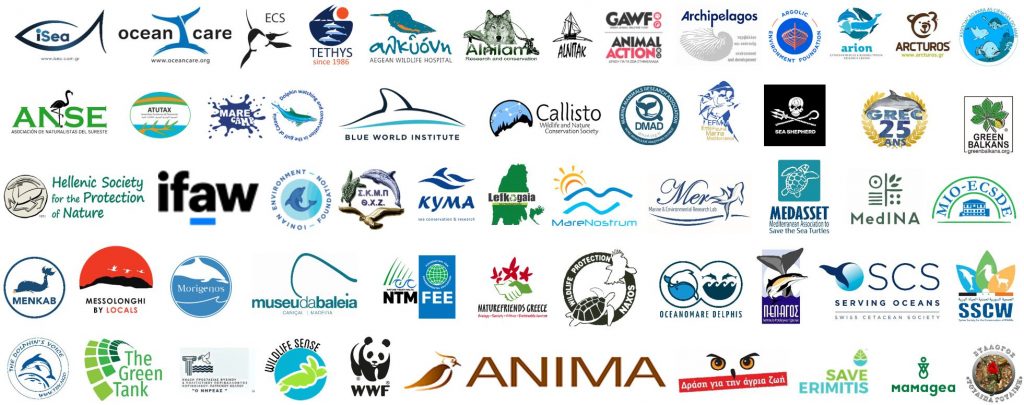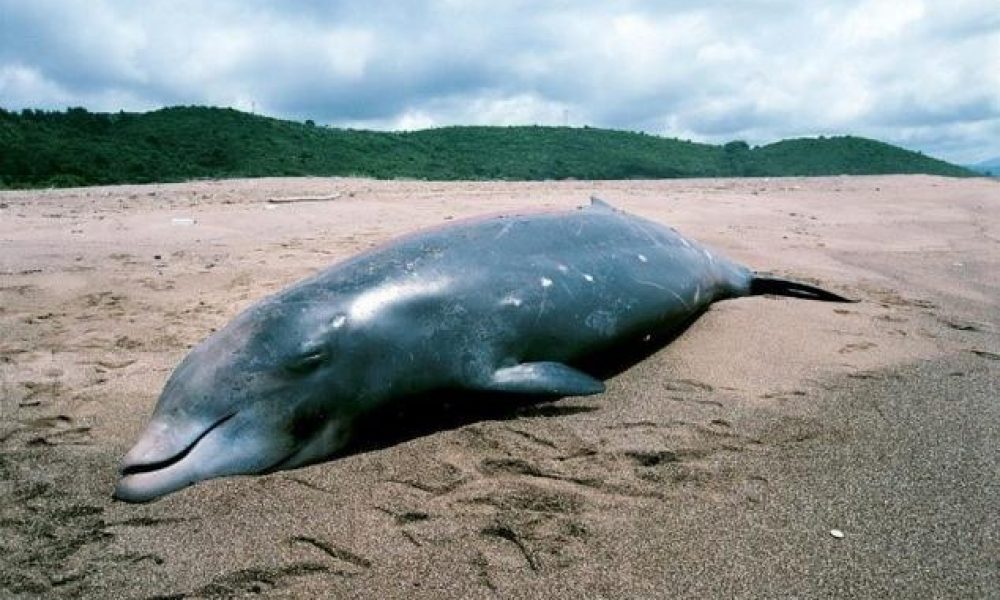A joint letter to the Greek Prime Minister from 61 environmental organisations, scientific experts, and representatives of the local community has called for an end to seismic exploration activities in the Hellenic Trench. Experts believe that seismic activity in the sea may be linked to the recent strandings of three Cuvier’s beaked whales on a beach in Corfu, as the incidents correspond to seismic surveys that took place on a research vessel nearby.
Climate change and continued loss of biodiversity remain two of the most pressing issues facing current and future generations. On the occasion of the recent stranding incidents of Cuvier’s beaked whales off the coasts of Corfu island, more than 60 environmental organisations, scientific experts, and representatives of the local community of the Ionian, joined forces and issued a letter to the Prime Minister and responsible Ministries. In the letter, we express our deep concerns over the seismic exploration activities in the Hellenic Trench, especially the threats they pose to marine species. The Hellenic Trench is a critical habitat for protected and endangered species of cetaceans and noise pollution caused by seismic surveys poses severe risks to marine mammals, in some cases even leading to death, as well as to other marine species.
Beaked whales are especially sensitive to noise and react negatively to sonar, with evidence suggesting that more beached beaked whales are found in areas of the sea where there is heavy sonar activity.
Conservation charities have posted photos on social media of whales lying on a beach, suspecting that their disorientation is not coincidental and is linked to the seismic operations. Such surveys often produce loud, disorienting noise underwater that can confuse and injure sea mammals.
The availability of energy at national level is undergoing a state of high political sensitivity, but seismic surveys conducted in the course of new oil and gas exploration that can only be exploited after a decade, are in stark contrast with the urgent and decisive action needed to reduce greenhouse gas emissions if we want to keep the world on a 1.5°C pathway, as agreed by the Paris Agreement, and totally ignore the Report of the United Nations’ Intergovernmental Panel on Climate Change (IPCC).
We, and the many other organisations undersigned in the letter, therefore urge the Greek Prime Minister and Minister of the Environment and Energy, to reconsider Greece’s oil and gas activities, especially in the Hellenic Trench all along from the northern Ionian Sea to South Crete.







